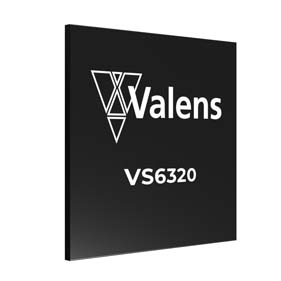
MIPI A-PHY is the first automotive industry standard developed for in-vehicle high-speed sensor connectivity. Since its release in 2020, it has attracted a growing ecosystem of companies designing products based on the technology. Valens Semiconductor, a key contributor to the standard, was the first on the market to offer A-PHY-compliant chipsets with its VA7000 product family.
“Best-in-class products, like our A-PHY chipsets, require best-in-class processes – and that’s exactly what we’re getting through this collaboration with Intel Foundry Services” said Gideon Ben Zvi, CEO of Valens Semiconductor. “With the full suite of resources Intel offers, including advanced process and packaging technologies, and a broad IP portfolio, we’re confident that we can further advance our A-PHY products. As a leader in MIPI A-PHY, we are proud to provide the most resilient high-performance connectivity technology, enabling significantly safer cars in the future.”
As part of this strategic collaboration, Valens Semiconductor will utilize Intel’s leading edge process technology to produce its second generation of A-PHY chipsets. Intel’s ecosystem and advanced processes will enable significant cost and power reductions for this chipset family while achieving the highest-performance and flawless Electromagnetic Compatibility (EMC). With the significant increase in bandwidth and other architecture requirements, this unique set of capabilities ensure link performance and passenger safety are maintained at all times.
“One of the goals of Intel Foundry Services is to identify transformative technologies, and harness Intel’s breakthrough process technology and global ecosystem to accelerate innovation and unlock new opportunities for our customers,” said Stuart Pann, Senior Vice President and General Manager, Intel Foundry Services. “The MIPI A-PHY chipset is an obvious fit – a next-generation technology with the potential for broad market adoption that can help advance automotive performance and safety and further the autonomous vision.”
This collaboration will play a significant role in boosting the vision for a chiplet architecture in the automotive industry. With its reliance on advanced package integration and the use of standardized interfaces such as UCIe, the chiplet architecture will be complimented by MIPI A-PHY as the standardized connectivity interface. This is the best way to meet the automotive market’s requirements for high reliability, high performance, and low latency, and MIPI A-PHY will be a key enabler of this next-generation silicon architecture.